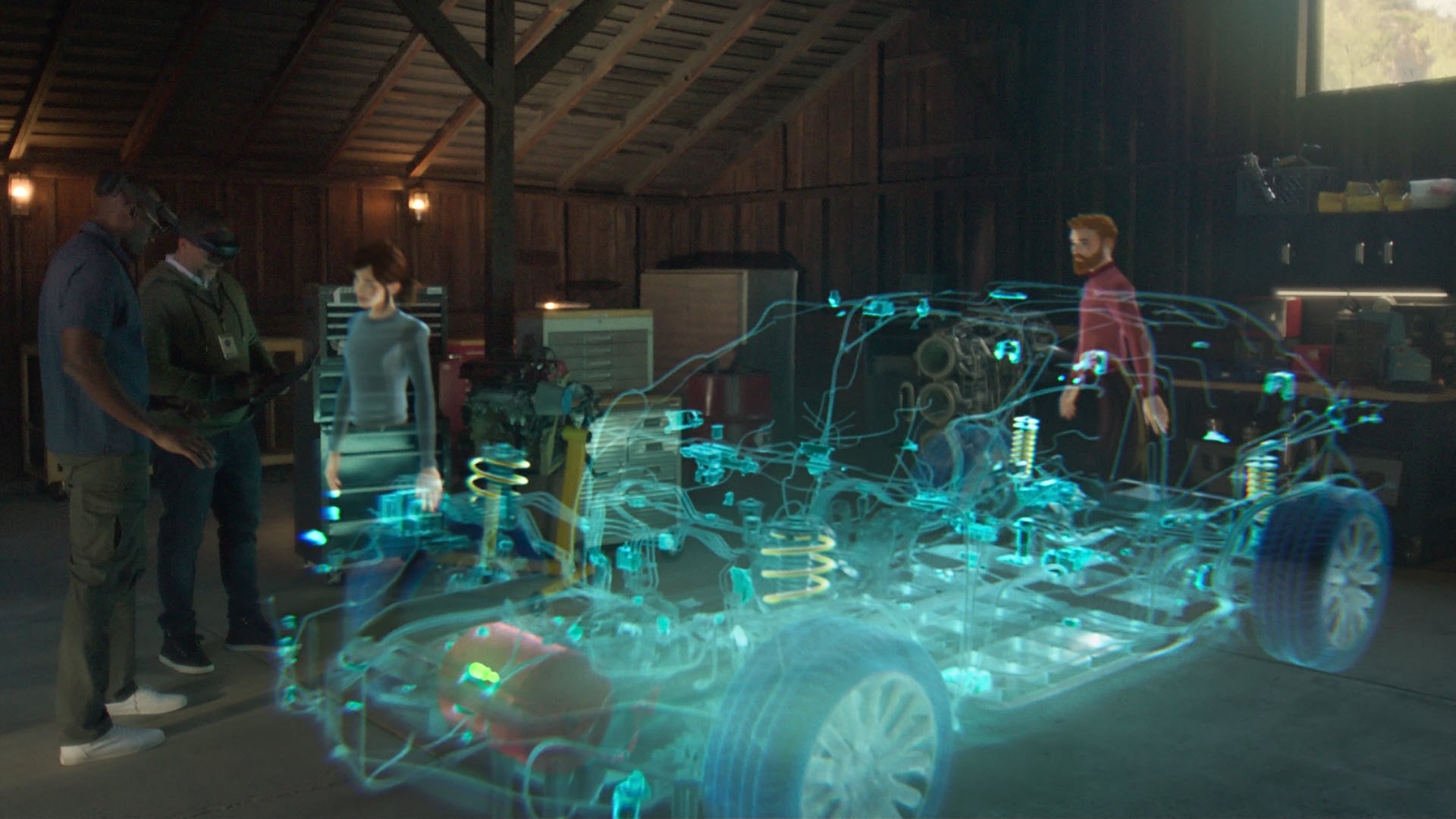The Metaverse: Fad or future?
.png)
The Metaverse can’t be defined by a location or a form of technology.
The Metaverse is a point in time where our digital life is worth more to us than our physical lives.
We may think that the Metaverse is years away, but the reality is that we have been gradually moving towards it since the advent of AOL messenger in 1997, spending more and more time on our devices, and placing greater weight on our digital identity.
We have transitioned towards more digital lives, going from our office to our homes, sports to video games and friends to followers.
For some in the younger generations, how we look on social media often means more than how we actually look in real life.
Our friendships, jobs and identities have become increasingly digital, and with the advent of cryptocurrencies and NFT’s – so have our assets and collectibles.
This all makes sense – if we spend more and more time online, then having an ounce of physical gold, a Rolex or a nice piece of art becomes increasingly less justifiable for our lifestyles.
It has been widely established that Web 3.0 will revolutionise how the internet functions, through the development of decentralised, P2P networks built on blockchain technology, however, what the Metaverse represents is an alteration in the way in which we interact with the internet.
The Metaverse will be a holistic and all-encompassing digital means of living life – where most of what we can currently do in our lives, will be easier/more efficient in the Metaverse.
The idea of a life defined primarily by digital experience is one which is foreign to most - so today we will go over the concept of a Metaverse, what it will look like, and the companies/communities which are set to benefit.
What exactly is the Metaverse?
If you asked Steve Jobs what the smartphone would be when he first launched the iPhone, the answer you would have received likely would’ve fallen short of what has actually eventuated.
Over the course of its development, it has continued to evolve and has impacted almost every element of our lives – being one of our most important possessions, and changing how we communicate, work, transact and relax.
In the same vein, it’s difficult to narrow down what the Metaverse will actually be, but what we can do is define its likely attributes.
The Metaverse continues indefinitely, not ever resetting, pausing, or ending.
It will be a living experience available to everyone, providing each user with an individual, and easily distinguishable identity – much like real life.
It will have a fully functioning economy – where there will be an opportunity to be rewarded for “work” that provides “value”.
It will span both digital and physical worlds and offer interoperability of data across all experiences in the Metaverse.
The Metaverse is not simply just a “virtual world”, nor can its purpose be simplified into a virtual space/game.
A Virtual Reality (VR) headset does not define the Metaverse, but simply reflects a way to experience it.
As in real life, games and entertainment only form a portion of the Metaverse.
Why does the Metaverse matter?
From an investment perspective, the Metaverse will likely receive trillions in capital flows – even if it falls short of the grandiose expectations which some have.
If we want to see an example of the scale of capital allocation, we only have to look back at the advent of the internet, and the impact it has had on the fortunes of various companies - where most of the largest companies in the world are currently related to the internet.
If the Metaverse is to be the next iteration of the internet, there will be obvious opportunities which arise as a result, notwithstanding the increased screen time and enhanced opportunities for commercial activities within the Metaverse.
Those who get it right and dominate the space will be richly rewarded and may even be “the next Amazon”.
On a human level, the Metaverse also symbolises the next frontier of human interaction – where the possibilities of social and professional interactions have expanded dramatically.
The move towards more digital interactions has already begun, where the past year and a half has seen Work From Home (WFH) trends within society fast-tracked by the necessity of the COVID-19 pandemic.
Initially, the move was borne out of necessity, but it has now transpired into a situation where many employees have now begun to prefer WFH, and place WFH accommodations as one of their key factors within their job search, as well as reducing demand for corporate travel.
As a result, it is clear that we have seen the light and passed a point of no return, where we will continue to transition towards a more digital life, with a preference for digital communication over face to face interactions.
The Metaverse offers enhanced communication mediums which will blur the lines between the virtual world and reality, with Microsoft’s “Mesh” platform already implementing holograms (where we could see a scene similar to that of the Jedi council) through its Mixed Reality applications (which combine the real world with VR and AR).

Source: Star Wars
Along with enhancing the quality of professional communication, the Metaverse will transform the ways in which we socialise and consume entertainment.
One example of this will be live shows – whether they be music concerts, plays, or sporting events.
The first iterations of this have already occurred within video games, where we have seen live concerts in Roblox and Fortnite from the likes of Travis Scott, Lil Nas X and Twenty One Pilots.
This trend could be set to continue, where you may be able to see your favourite band play in a life-like video experience, or similarly watch a live sports game with your friends by your side, as if you were at the game itself.
Whilst it is difficult to replicate the atmosphere of a crowd in real life, it enables you to experience these events in the company of anyone around the world (irrespective of their physical distance to you).
However, it must be noted that the Metaverse is a much broader concept, where these factors of communication and entertainment only make up a small proportion of its value proposition.
This all sounds great, but how long until we have the required technology?
How do we create the Metaverse?
The Metaverse in its final form is likely to be decades away and will require a series of developments in different fields.
Hardware and computing power will have to improve, where VR headsets and hardware to create and operate VR and AR environments will have to become more efficient and scalable.
Internet connectivity will have to improve, given the high bandwidth which will be required and the unprecedented scale of interaction between various users on the internet.
We will have to develop and operate complex virtual platforms, where users are able to engage in a variety of experiences that they would have access to in the real world – like driving a car, walking on a beach, or listening to live music.
Digital payment rails will have to be established, where cryptocurrencies or central bank-issued digital currencies and blockchain technologies can be implemented to seamlessly act as the currency of the internet.
Finally, we will have to transform user behaviour – to get individuals and groups engaged and educated on the Metaverse.
Will the Metaverse be a good thing?
Whilst we have focused on the value which the Metaverse can add so far in this note – there is a dark direction which it can follow if placed in the wrong hands.
There are currently three key vehicles which we could use to access the Metaverse in the future, which would be:
- Virtual Reality (VR), which involves full immersion into an alternate reality
- Augmented Reality (AR), where digital information is superimposed over the real world
- Mixed Reality (MR), where the real world and alternate realities collide.
For all three vehicles, there would be a greater depth of data transmitted, where many current prototypes (particularly within MR), have face, eye, body and hand tracking technology to ensure a seamless user experience.
Data would subsequently be readily available regarding what you say, what you look at, and what you do.
This depth of data is something which realistically should not be entrusted to one company – and especially not to one like Facebook who have a history of utilising user data for manipulative practices.
Who stands to benefit from the Metaverse?
The Metaverse is a relatively nascent concept, with much technological development required before we can get to a scalable end product.
However, there are a few players who are already leading in the space:
Microsoft – (NASDAQ: MSFT)
Microsoft has been developing “Mesh” – an extension of Teams which will act as a virtual meeting platform, powered by Mixed Reality (a combination of AR and VR).
The goal is to create a working environment which has life-like social interactions, whilst going beyond the possibilities of the physical through utilising AR technology.
With its suite of office products, Microsoft will likely continue to invest heavily into the space and be one of the leaders in developing the Metaverse.

Source: Microsoft
Meta (formally known as Facebook) – (NASDAQ: FB)
Mark Zuckerberg has brought the most attention to the space in recent times, following his announcement that he would change Facebook’s name to Meta – a symbol of the company's renewed focus on the Metaverse.
Zuckerberg has been obsessed with the space for years and has been building out his portfolio through strategic acquisitions, including Oculus (VR goggles), Within (VR fitness app), and various VR game-makers.
Nvidia (NASDAQ: NVDA)
Nvidia Omniverse is a scalable, multi-GPU real-time development platform which helps users build 3D simulations and collaborate on development.
Essentially – it is the hardware which is likely to power the Metaverse.
One portion of the Omniverse is “Avatar”, which will have interactive characters which respond to speech and facial cues, as well as the ability to maintain conversation with people on multiple topics like climate change and astronomy.
Roblox (NYSE: RBLX)
Roblox is the leading User Generated Content (UGC) gaming platform and has become one of the fastest-growing entertainment platforms in history – boasting 47.3 million daily average users over the past quarter (Roblox Earnings November 2021).
What sets Roblox apart from other companies within the gaming industry is that it delivers a social experience – where users log on to chat to friends, as opposed to meeting up with them in real life.
No easy feat
The task ahead of developers is immense – but so it should be for a task of such importance.
It will take decades of development until we can reach a final end-product, where we can live a digital life which surpasses reality.
However, what we know for sure is that the transition is inevitable and has been in motion for the past 20 years.
What the Metaverse becomes will change over time, as our technology and lifestyles evolve.
As we saw with the development of the internet, there will likely be a significant transfer of capital towards the sector, where the best and brightest will be rewarded richly – offering ample opportunities for investors to benefit.
Never miss an insight
Enjoy this wire? Hit the ‘like’ button to let us know. Stay up to date with my content by hitting the ‘follow’ button below and you’ll be notified every time I post a wire.
Not already a Livewire member? Sign up today to get free access to investment ideas and strategies from Australia’s leading investors.
2 topics
.png)
Mike is an Investment Analyst at Mason Stevens, where he is responsible for a broad range of investment management activities, primarily focused on the firm’s fixed income product offering and wealth services. Mike has a strong interest and...
Expertise
.png)
Mike is an Investment Analyst at Mason Stevens, where he is responsible for a broad range of investment management activities, primarily focused on the firm’s fixed income product offering and wealth services. Mike has a strong interest and...
.png)